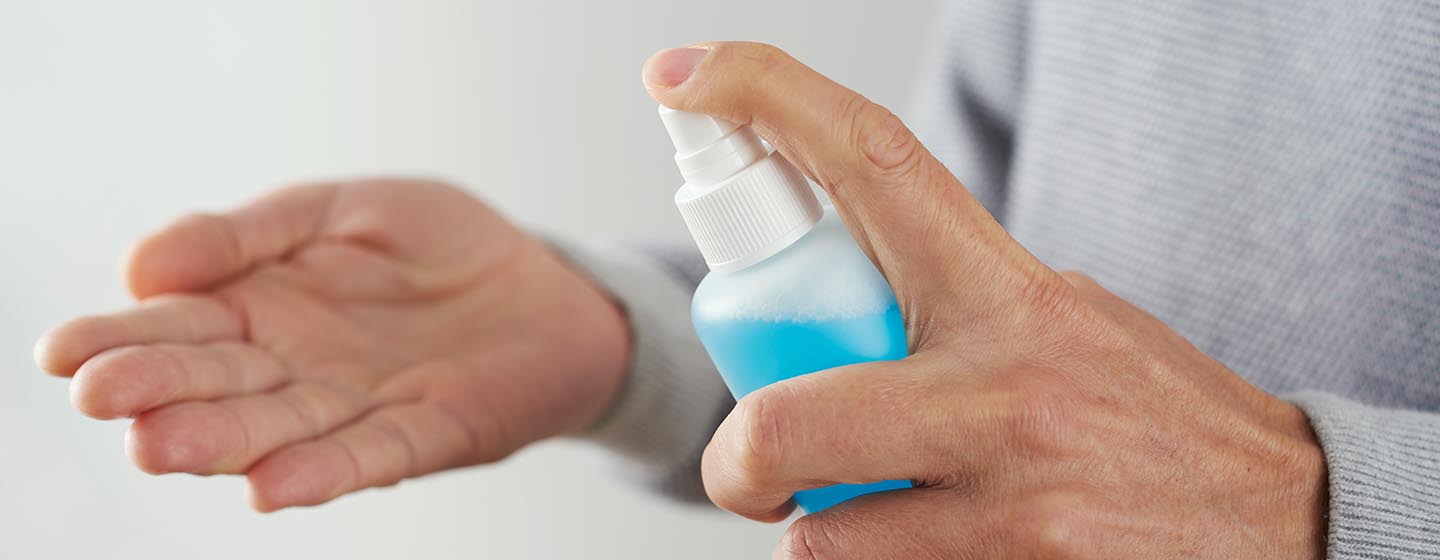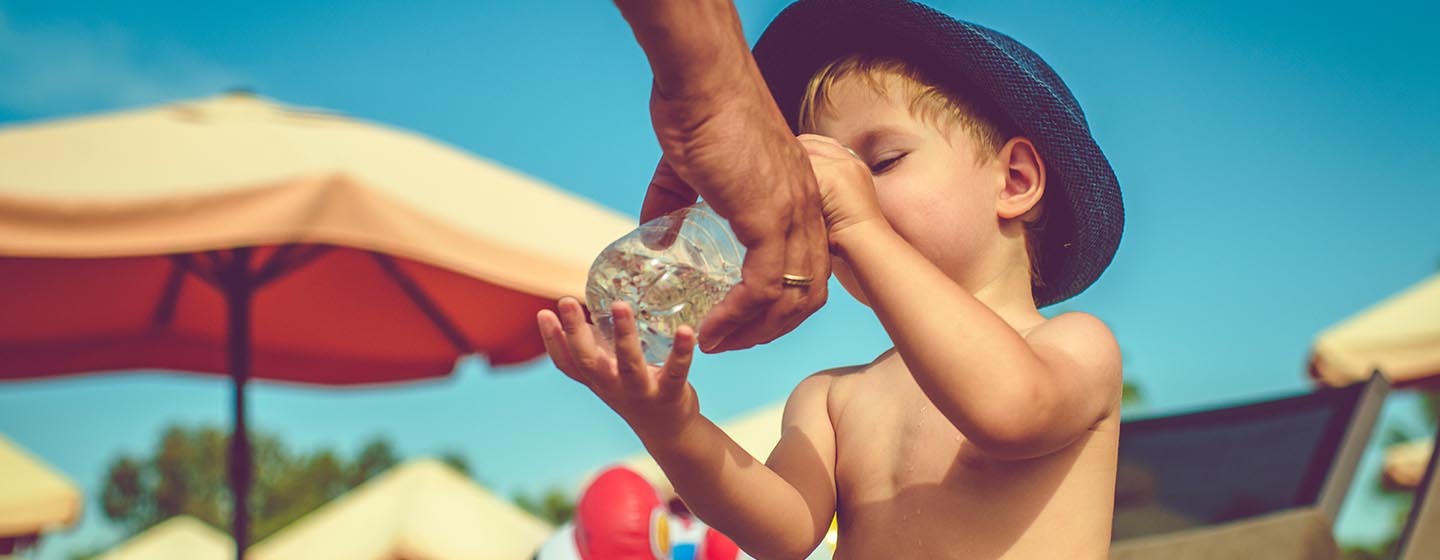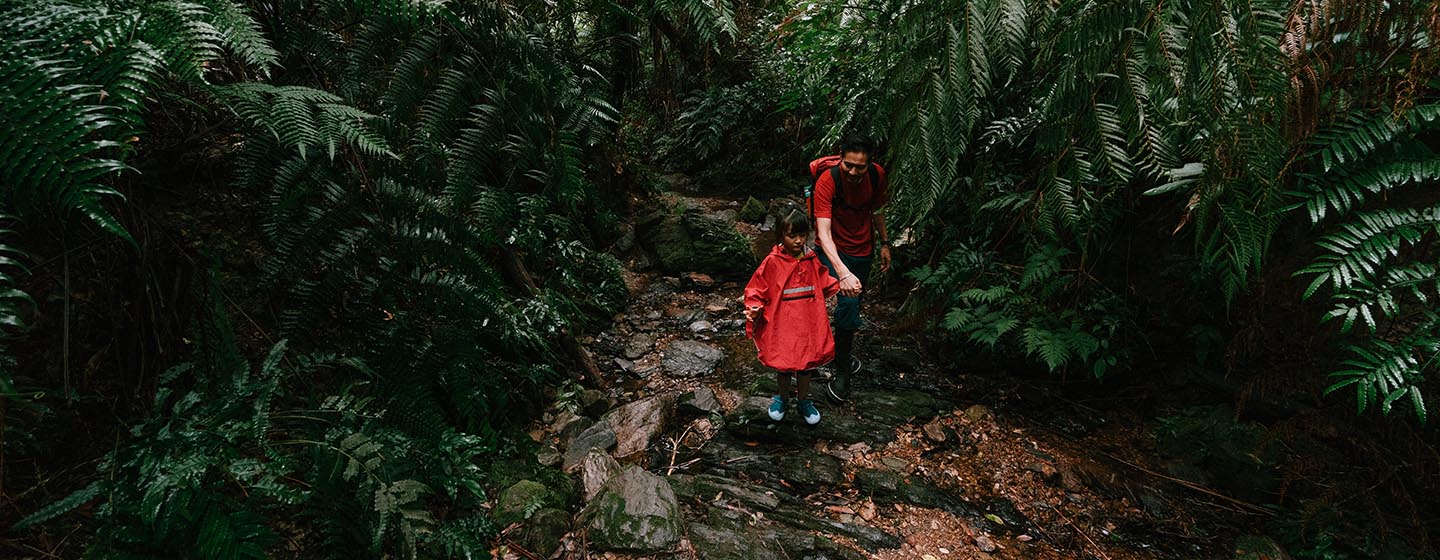Safety tips for spring-breaking families
Tickets booked, bags packed—you’re all set to head out to your spring break destination. You’re in family vacation mode and we know how long you’ve waited for this one. While we always want our trips to be perfect, sometimes things may not go as planned.
No one wants to think that they could become sick, injured or be put in an unsafe position while on vacation. In reality though, these things can happen whether you’re travelling abroad or closer to home. In light of recent world events due to the outbreak of the COVID-19 virus, if you're travelling during spring break, here are some health and safety travel tips to help you avoid trouble during your trip.

Personal care
While travelling, the risk of illnesses is usually present, from the common cold to diseases such as malaria to wider-spread viruses such as coronavirus which is currently an international health issue.
Because coronavirus has just been newly identified, there may be limited information available about preventative measures. At such a time, it’s best to practice as much of the safe hygiene measures we already know and check with major local and international health agencies about public health warnings and to learn about other measures they’ve found to help protect a person from the coronavirus.
Here are some key health tips provided by the BC government, BC Centre for Disease Control, Public Health Agency of Canada and World Health Organization:
- Keep your hands clean by washing them regularly with soap and water or rubbing alcohol-based hand gels. Wash for about 20 seconds to ensure you’ve rid your hands of germs.
- Do not touch your hands to your mouth, nose or eyes if you’re unsure that they’re clean. Infectious bacteria or viruses can pass through those areas. Avoid using your finger tips to press buttons like those found on an elevator, try using your knuckles instead.
- Regularly clean and disinfect frequently touched surfaces.
- Do not share food, drinks, utensils, etc.
- Maintain at least 1 metre (3 feet) distance between yourself and anyone who is coughing or sneezing to avoid breathing in any spray that comes from a cough or sneeze.
- When coughing and sneezing, cover your mouth and nose with a disposable tissue and discard it right away, then thoroughly wash your hands. Don’t sneeze into your hands, do it into the crease of your elbow if you don’t have a tissue.
- For destinations where insect-borne diseases are common, carry insect repellant sprays/gels to help prevent insect bites if you were unable to get the proper preventive vaccination before you left home. Whether you’re at your destination or have returned home, if you begin to experience symptoms similar to those associated with coronavirus, such as such as fever, cough and difficulty breathing, follow the guidelines provided by the BC Ministry of Health.

Water
Consuming low-quality water can lead to many minor ailments or more serious health problems that can make things difficult on your trip but could also cost you a lot of money in medical treatment if your condition is serious. It may seem simple to avoid drinking tap water while travelling, but you’d be surprised to know how mindful you need to be about when tap water is being used.
- Stick to bottled or purified water, especially if you’re travelling with a child, or go for properly sealed canned or bottled beverages.
- Avoid fountain drinks which are made with tap water that’s been carbonated.
- Ensure ice used in your drinks are made from bottled or purified water, or avoid ice altogether. Be careful of foods, such as fruits and vegetables that sit on top of ice to keep them cool.
- Avoid fruits and vegetables that are washed using tap water.
- Use bottled or purified water when brushing your teeth and avoid running your toothbrush under the tap.
- Be mindful about keeping your mouth closed while showering so you don’t accidentally swallow any water.
- If you think it’ll be difficult to find bottled water, consider bringing a travel water purification product, such as water-purifying straws or tablets or a filter bottle.
Food
Whether you’re sticking to your favourite dishes or trying something new, here are safety tips to follow to help minimize the risk of food-related illnesses.
- Try to stick to cooked food over raw food as heat kills germs. Be mindful of raw foods such as: cut-up fruit and vegetables and salads along with condiments, sauces and dips made from raw fruits or vegetables.
- Experimenting with the street food? Take precautions such as watching your food being cooked on the grill to ensure your dish is fully cooked and steaming hot.
- If you’ll be on the go for long periods of time, stock up on packaged dry foods like bread, crackers, chips, chocolate or nutrition bars so you don’t have to rely on street-vendor food.
- If anyone in your family has food allergies, note what they're allergic to and how serious the condition is, and write it down in the language of your destination so you can provide that information to staff members at local restaurants.

Activities
While an injury can happen at any time, such as spraining an ankle while walking on a set of stairs, ensure you and your family follow safety instructions provided at your accommodations, swimming pool areas, beaches and on tours. Here are some all-around injury prevention tips:
- Don’t run in swimming pool areas.
- Avoid too much sun exposure. Use sunscreen and reapply throughout the day.
- Be aware of safety signs at beaches and follow their instructions.
- Only swim in areas where a lifeguard is on duty.
- Use proper footwear such as closed-toe shoes or runners when going on a hike or long walks.
If you and your family decide to take things up a notch with extreme activities such as canyoning, surfing or parasailing , ensure you have travel insurance that covers these types of activities since they typically come with specific risks. BCAA Travel Insurance includes coverage for extreme activities, just take note, if you’re a professional or it’s a speed contest, you might need extra coverage. Speak to a BCAA Insurance Expert for details.
Just in case
- Carry a portable phone charger and local electrical outlet adapter when venturing out.
- If you don’t know the local language, keep a translating app on your phone so you can ask for help.
- Avoid using Wi-Fi from unknown sources to prevent access to your device.
- Share your travel information with someone you trust back home.
- Keep local emergency helpline numbers on your phone and written down.
- Anytime you travel outside of BC, it’s essential to have travel medical coverage, particularly if you’re travelling internationally, and especially when travelling with children. Look for comprehensive travel insurance that include a variety of coverages. BCAA’s out-of-province emergency medical coverage includes a maximum of $10,000,000 in emergency medical coverage. Plus, Members save 10% on BCAA Travel Insurance and Kids Go Free* (available for both single trip or an annual plan).
More health and safety travel tips
To find more great advice whether you're travelling within Canada or abroad, we recommend visiting the Government of Canada Travel and Tourism website. You'll find information on travel advisories, travel safety and much more.
* Dependent children are free on a family policy with two paying adults. Adults must be aged 59 or younger.






